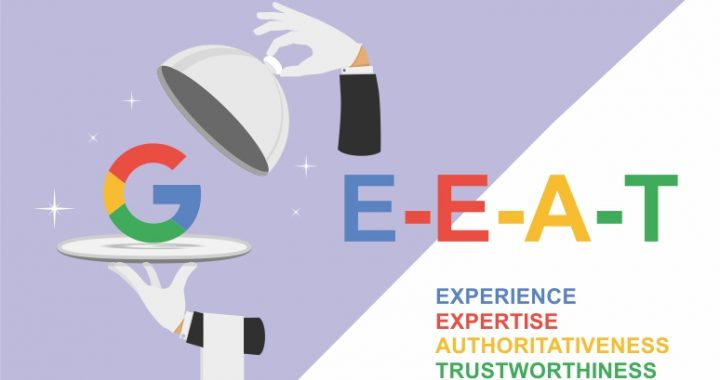
Just think about this Would you trust a random stranger on the street for health advice? No, you would go to a doctor – someone with experience, expertise and trustworthiness (aka E-E-T). The same goes for websites, especially those dealing with YMYL (Your Money, Your Life) topics like health, finance or legal matters. Google wants to ensure users find reliable information, and websites with high E- E-A-T are like gold in their eyes.
So, how do you improve your website’s E-A-T and climb the Google rankings? Let’s understand in this blog.
Table of contents
- E-A-T Vs E-E-A-T
- What is YMYL
- How to Improve Your Website’s E-E-A-T
- Conclusion
- Frequently Asked Questions
E-A-T Vs E-E-A-T
The world of SEO is constantly changing with changes in Google’s Algorithm and changing trends. E-A-T is one such concept that evolved because of these changes. EAT means (Expertise, Authoritativeness, Trustworthiness).
Google established EAT, a set of quality principles, to evaluate the worth and credibility of web content. It highlights the importance of websites and content providers’ authority, competence and dependability. Higher search rankings result from EAT’s signal to search engines that a website can be relied upon to deliver accurate and trustworthy content.
What is E-E-A-T
E-E-A-T is expanding the scope of the E-A-T, considering the author’s experience within the subject matter or sector in addition to their knowledge, authority, and reliability. Google added the extra “E” for “Experience” in December 2022.
It acknowledges that subject matter specialists may have different levels of expertise in various niches, enabling a more comprehensive evaluation of the reliability and relevance of the content.
Experience
High-quality content frequently shows the author’s familiarity with the subject. This serves as evidence that recommendations are tried and true. Additionally, such insights are real.
Expertise
Authors’ topical expertise must be determined by search quality raters. Do they possess the skills, certifications and understanding needed to provide accurate information?
Experience and expertise frequently overlap. However, they are not synonymous. For instance, this blog’s author has knowledge and experience in the subject matter, which enhances the content’s authenticity and credibility.


Authoritativeness
The term “authoritativeness” describes your general standing in your field. particularly among authorities and influential people in your field.
Google quality raters are directed to assess the website, the content, and its author’s credibility.
For instance, take a look at this article on protein supplementation. It’s featured in the Journal of the International Society of Sports Nutrition, a reputable journal, making the information from it reliable.

Similarly, when examining the author’s background, you’ll find they are associated with the Department of Sports and Exercise Science (DISMOT), adding credibility and authority to their work.

Trustworthiness
The most crucial component of Google E-E-A-T SEO is trustworthiness. Quality Raters need to consider the website, content and author.
Make it obvious who wrote your information, edit it for factual accuracy, give credit to reliable sources, and don’t hide anything behind a wall of advertisements.
However, keep in mind that this goes beyond content marketing.
Google describes as untrustworthy “a shopping checkout page that has an insecure connection” in the Search Quality Rater Guidelines.
E-A-T, E-E-A-T & SEO
EAT and EEAT are essential components of SEO strategy and are intimately related to search engine algorithms. When prioritising searches, search engines such as Google take into account signals from EAT and EEAT.
What is YMYL
Topics related to YMYL (Your Money or Your Life) have the potential to have significant impacts on readers’ safety, well-being, health, or finances. Common YMYL topics include finance, medicine, and current events.
E-E-A-T is critical to YMYL SEO since false information on these subjects can negatively impact the following:
- The individual viewing the content
- Others who were impacted by the content viewer
- Groups of individuals impacted by the content viewers’ behaviour
Examples of Google YMYL Topics:
Your Money:
- Financial planning and investments (e.g., retirement advice, stock market analysis)
- Banking and loans (e.g., choosing the right credit card, applying for a mortgage)
- Taxes and accounting (e.g., filing taxes, understanding tax deductions)
- Cryptocurrency and blockchain technology (due to its complex and evolving nature)
Your Health:
- Medical advice and diagnosis (e.g., treating common illnesses, understanding symptoms)
- Mental health and wellbeing (e.g., managing anxiety, coping with depression)
- Nutrition and healthy eating (e.g., creating balanced meals and understanding dietary needs)
- Alternative and complementary medicine (due to the lack of extensive scientific research)
Your Safety:
- Emergency preparedness and disaster survival (e.g., building a first-aid kit, preparing for natural disasters)
- Product safety and recalls (e.g., information on unsafe products, how to report safety hazards)
- Personal safety and self-defence (e.g., tips on staying safe while travelling, how to avoid scams)
- Legal advice and legal matters (e.g., understanding basic legal rights, and navigating the court system)
Other YMYL Topics:
- Parenting and childcare (e.g., raising children, choosing the right childcare options)
- Home improvement and repairs (e.g., electrical work, DIY projects)
- Major life decisions (e.g., choosing a career path, buying a house)
How to Improve Your Website’s E-E-A-T
Here are some tips you can follow to improve your website’s E-E-A-T
1. Publish High-Quality, Authoritative Content
Focus on creating valuable content that showcases your expertise. This could include informative blog posts, in-depth articles or even engaging infographics. Ensure your content is well-researched, factually accurate and relevant to your target audience. Consider collaborating with industry experts or guest bloggers to add diverse perspectives and enhance your authority.
2. Earn Credibility Through Trustworthy Links
By demonstrating to search engines that your website is a trustworthy source, backlinks function as digital votes of confidence.
Prioritise obtaining backlinks from reputable websites that are associated with your industry. Effective strategies to obtain backlinks organically include
- Writing guest posts on other websites,
- Taking part in online forums,
- Producing material that is easily shared.
Stay clear of link-building schemes and backlink purchases as Google may penalise your website for these actions.
3. Showcase Your Expertise and Experience
Tell your story, highlight the experience and qualifications of your team, and showcase your passion for your field. Use visuals like team photos and testimonials to add a personal touch and build trust with potential customers. Maintain a professional yet approachable tone throughout the page.
4. Consider Working with an SEO Company
It can be difficult to build E-A-T and optimise your website for search engines. If you require assistance, think about collaborating with a reputable SEO company in Ahmedabad. An experienced SEO company may offer insightful advice on link-building, content production, technical SEO optimisation and accomplishing your website’s overall objectives. Investing in expert assistance can optimise your website’s potential while saving you time and money.
5. Optimise Your Website for User Experience
Establishing confidence requires a website that is both well-designed and easy to use. Make sure your website has logical categories, easy-to-navigate menus, and appropriate internal connections. Make sure your website is mobile-friendly because a lot of people use their smartphones or tablets for internet browsing. To keep people interested and coming back for more, concentrate on providing a great user experience.
6. Stay Current and Relevant
Remember that the internet is a dynamic environment, so keep your website up to date. Update your content frequently with new insights, industry developments, and facts. This shows your viewers how knowledgeable you are and maintains their interest. To efficiently organise and schedule content creation, take into consideration using a content calendar.
7. Build Trust with Social Proof
Encourage satisfied customers to post positive reviews on your website and other internet sites. Testimonials serve as social proof, proving your reliability and boosting potential clients’ self-assurance. Showcase your dedication to client satisfaction by professionally and quickly responding to both good and negative reviews.
Conclusion
Remember, building E-E-A-T takes time and effort, but the rewards are worth it. By implementing these tips and consistently creating valuable content, you can improve your website’s E-A-T and become a true online authority. Still feeling overwhelmed? Don’t fret! A helping hand is just around the corner. A digital marketing company in Ahmedabad, like ours can help you navigate the world of SEO and boost your website’s E- E-A-T to new heights. Contact us at hello@florafountain.com. Let’s create amazing content and watch your website climb the Google ladder to success!



